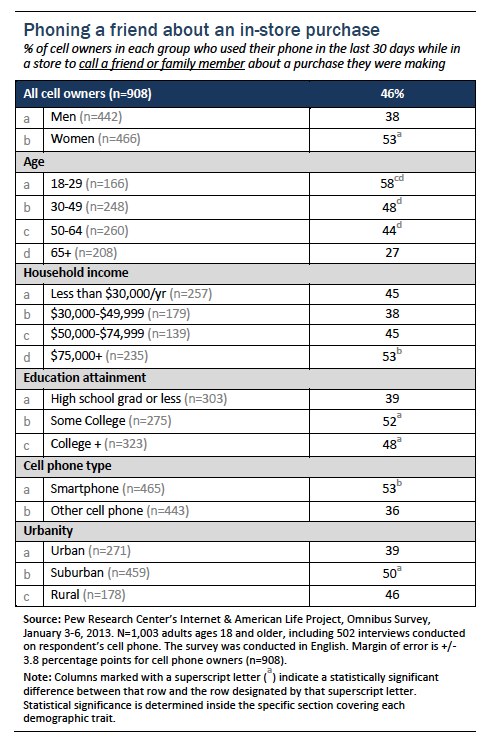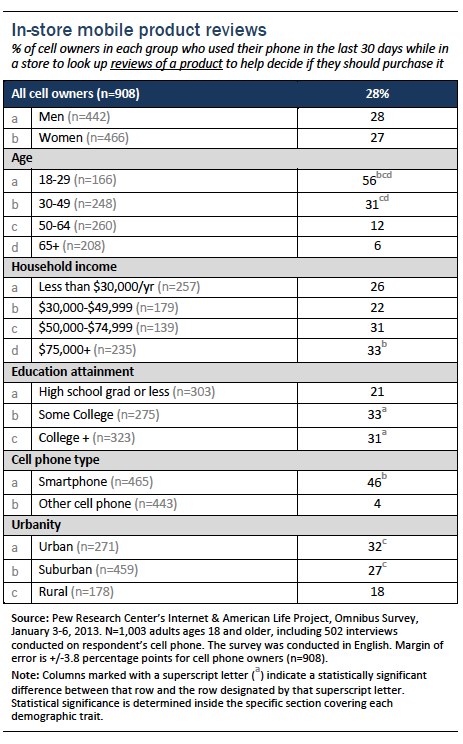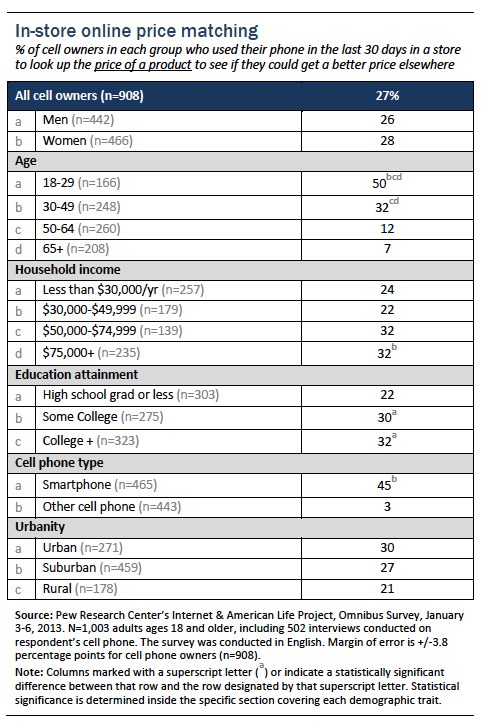Calling others for purchasing advice
Women are more likely than men to have recently used their cell phone to call someone for advice or recommendations about a purchase they were considering making. Young adults, smartphone owners, and cell owners with at least some college experience are all relatively likely to have taken part in this behavior.

Online product reviews
Young adults are especially likely to use their phone to check reviews of a product while inside a store—some 56% of cell owners ages 18-29 did so this holiday season. Smartphone owners, urban/suburban residents, and those with at least some college experience are also more likely than average to use their phones for in-store product reviews.

Online price matching
Using one’s phone to look up product prices while inside a store is especially commonplace among young adults (fully half of cell owners ages 18-29 have done this). Smartphone owners and the college-educated are among the most avid mobile price-matchers.

As in our 2012 survey on this topic, we presented the 27% of cell owners who engaged in online price-matching this holiday season with a follow-up question in which we asked them what happened on the most recent occasion where they looked up the price of an in-store product using their cell phone. And like we found in our 2012 survey, a majority of these interactions result in the consumer purchasing the item in the store — or simply not purchasing it at all:
- 30% decided to not purchase the product at all
- 46% purchased the product at that particular store
- 12% purchased the product online
- 6% purchased the product at a different store
The Pew Research Center’s Internet & American Life Project is an initiative of the Pew Research Center, a nonprofit “fact tank” that provides information on the issues, attitudes, and trends shaping America and the world. The Pew Internet Project explores the impact of the internet on children, families, communities, the work place, schools, health care and civic/political life. The Project is nonpartisan and takes no position on policy issues. Support for the Project is provided by The Pew Charitable Trusts. More information is available at www.pewresearch.org/internet


